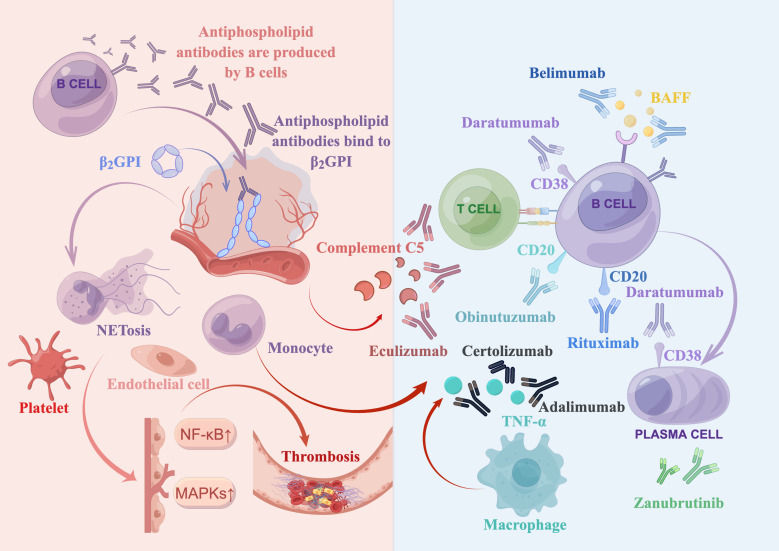Figure 1.
Summary of antiphospholipid syndrome pathogenesis and biologics treatments. Antiphospholipid antibodies, produced by B cells, bind to open and immunogenic β2-glycoprotein I (β2GPI) on the surface of endothelial cells. This leads to the activation of various target cells, such as complement cells, platelets, monocytes (including macrophages that secrete TNF-α), and neutrophils (which release neutrophil extracellular traps [NETosis]). Moreover, it upregulates the mitogen-activated protein kinase (MAPK) and nuclear factor kappa B (NF-κB) pathways, ultimately resulting in thrombosis. Several biologics have been developed to target various factors involved in this process. These include a complement 5 inhibitor (eculizumab), a type I anti-CD20 monoclonal antibody (rituximab), a type II anti-CD20 monoclonal antibody (obinutuzumab), a B cell activating factor (BAFF) inhibitor (belimumab), an anti-CD38 monoclonal antibody (daratumumab), anti-TNF-α monoclonal antibodies (adalimumab and certolizumab), and a bruton tyrosine kinase (BTK) inhibitor (zanubrutinib, which is currently being investigated in clinical trials).

